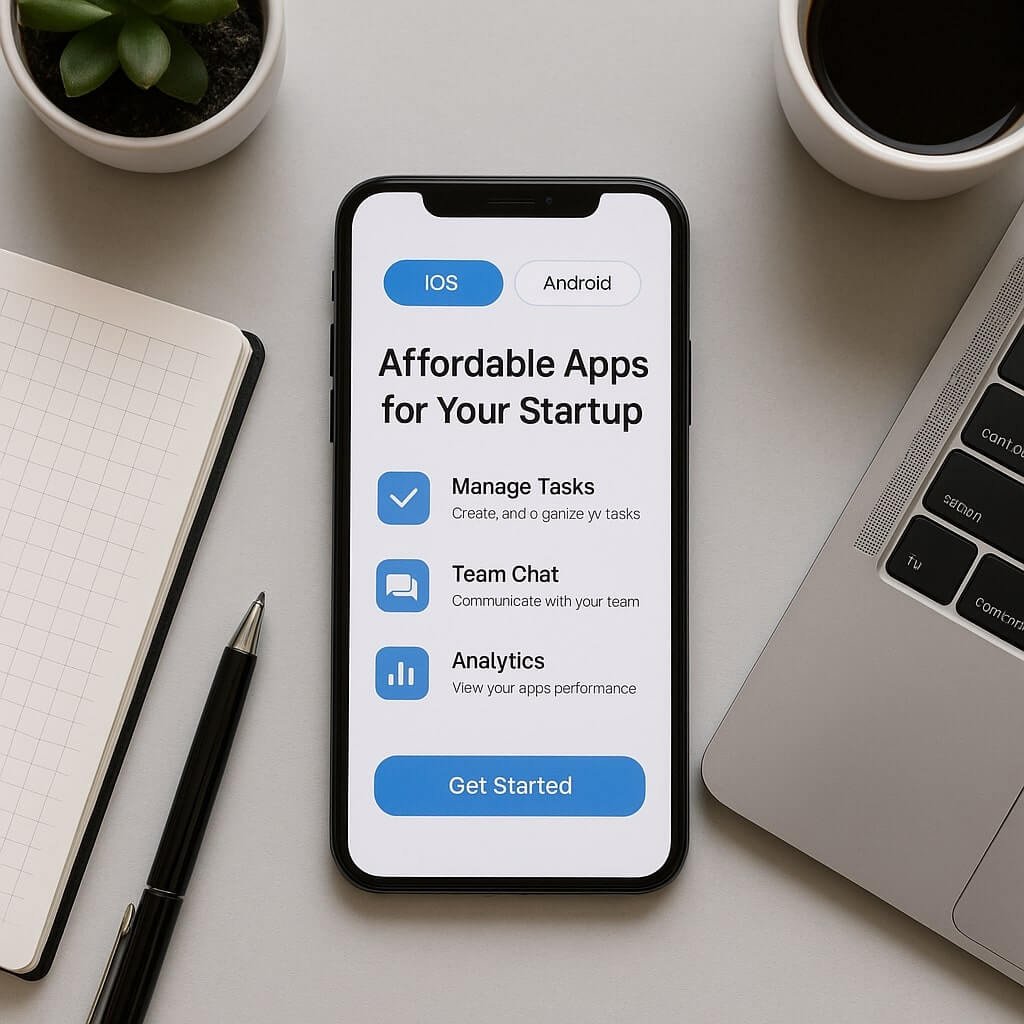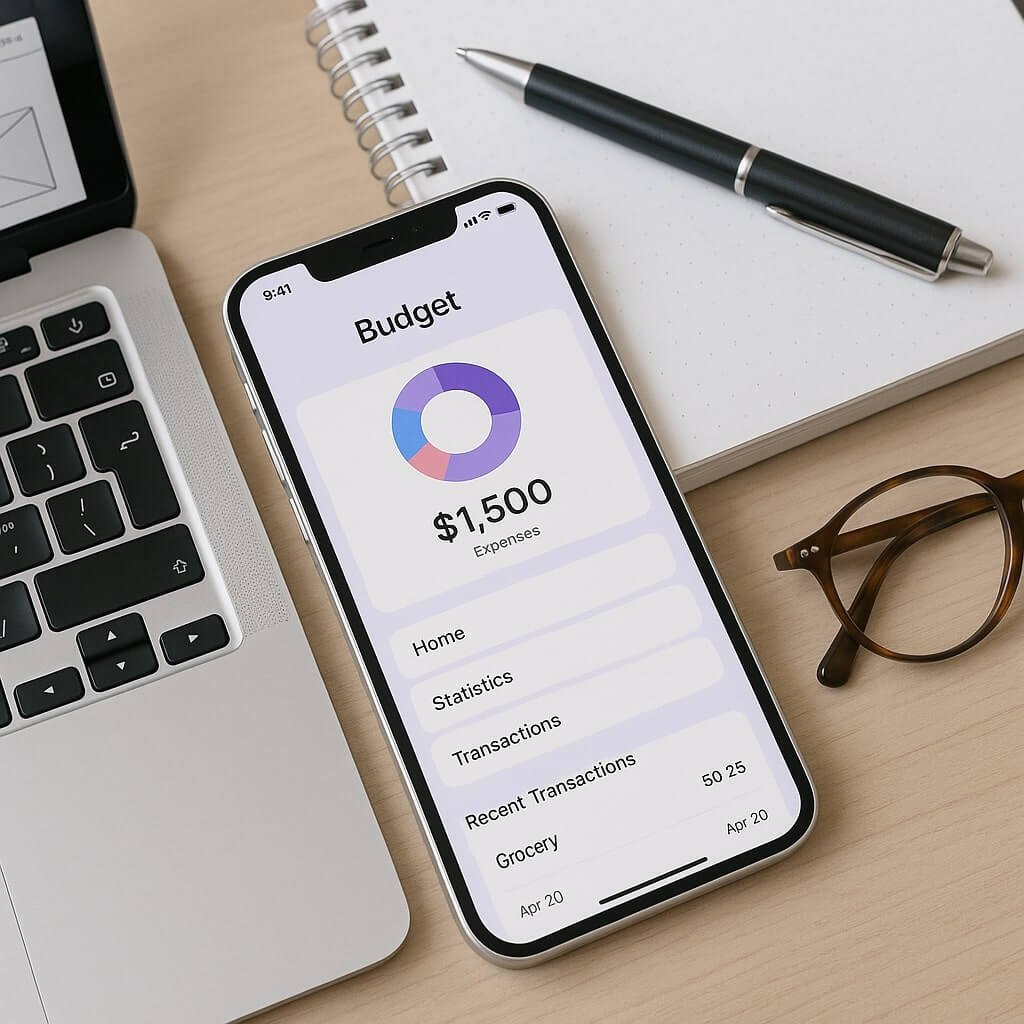In today’s mobile-first world, having a functional and engaging app is no longer a luxury—it’s a necessity for startups aiming to compete and scale. Whether you’re looking to validate your MVP, reach new audiences, or enhance customer engagement, affordable iOS and Android app development can be your gateway to digital success.
But for bootstrapped startups, budget is always a concern. This guide explores how to build high-quality mobile apps on a budget, what platforms to consider, and how to make smart decisions without compromising performance or scalability.
Why Mobile Apps Matter for Startups
1. Direct Engagement with Customers
Mobile apps offer an intimate channel to communicate, market, and interact with users, enhancing loyalty and retention.
2. Competitive Differentiation
An intuitive app with a strong user experience can give your startup a critical edge over competitors who rely only on websites.
3. Faster Feedback & Iteration
Apps allow startups to rapidly deploy updates, test features, and gather usage analytics for continuous improvement.
Strategies to Build Affordable Mobile Apps
1. Cross-Platform Development
Frameworks like Flutter, React Native, and Xamarin allow you to build one codebase that works on both iOS and Android, saving up to 40–50% in development time and cost.
Benefits:
- Single codebase
- Faster time to market
- Lower maintenance costs
2. MVP (Minimum Viable Product) First
Start with a lean, core-featured version of your app. Once validated, you can scale with user-driven improvements.
MVP essentials:
- Authentication
- Core feature(s)
- Analytics
- Feedback loop
3. Low-Code/No-Code Platforms
Platforms like Adalo, Thunkable, and Glide empower non-technical founders to build and publish functional apps at a fraction of the cost.
Ideal for:
- Prototypes
- Internal tools
- Simple customer-facing apps
4. Outsource to Offshore or Freelancers
Hiring talented developers from countries like India, Bangladesh, and Eastern Europe can reduce app costs by 60–70% without sacrificing quality.
Tip: Always check portfolios, reviews, and use platforms like Upwork or Toptal for trusted talent.
Key Features Every Startup App Should Have
- User-Friendly UI/UX
- Push Notifications
- In-App Messaging/Chat
- Analytics & Event Tracking
- Offline Functionality (if applicable)
- Social Sharing & Integrations
- Payment Gateway (for monetisation)
Cost Breakdown: What to Expect
| Feature Type | Estimated Cost Range (USD) |
|---|---|
| MVP (Basic App) | $2,000 – $8,000 |
| Mid-Level App | $8,000 – $20,000 |
| Full-Feature Cross-Platform App | $20,000 – $50,000 |
| Ongoing Maintenance | 15–25% of development cost/year |
Note: Prices vary depending on the complexity, design requirements, and location of your development team.
How to Choose the Right Development Partner
- Portfolio of Similar Projects
- Transparent Pricing & Communication
- Agile Development Practices
- Post-Launch Support
- Client Testimonials
Best Platforms & Tools for Startup App Development
| Tool/Platform | Type | Use Case |
|---|---|---|
| Flutter | Cross-platform SDK | Scalable apps for both iOS/Android |
| Adalo | No-code platform | Rapid MVPs |
| Firebase | Backend-as-a-Service | Authentication, database, notifications |
| Figma | UI/UX Design Tool | Prototyping & collaboration |
| Stripe | Payment Gateway | In-app purchases |
Frequently Asked Questions (FAQs)
How much does it cost to build a startup app?
A basic MVP can start as low as $2,000. Full-featured cross-platform apps range from $15,000 to $50,000, depending on complexity and platform choice.
Should I build for iOS or Android first?
If you’re on a tight budget, consider a cross-platform solution to build for both simultaneously. If targeting a specific audience, choose the platform they use most (e.g., Android for emerging markets, iOS for US/Europe).
Is no-code a good option for my startup
Yes, especially for MVPs or internal tools. Platforms like Thunkable or Adalo are ideal for quick, budget-friendly deployments without code.
How long does it take to develop a mobile app?
A simple MVP can take 4–8 weeks. Complex apps may take 3–6 months, especially if custom APIs or backend services are involved.
What are the hidden costs I should watch out for?
Consider expenses like:
App Store fees ($99/year for Apple)
Google Play fees ($25 one-time)
Maintenance & bug fixing
Third-party API costs (e.g., Stripe, Firebase)
Final Thoughts
Developing an app doesn’t have to break the bank. With smart planning, the right tools, and a clear roadmap, your startup can launch an effective mobile app affordably and efficiently. Focus on value creation, user feedback, and iteration, and you’ll be well on your way to building a scalable mobile-first business.






